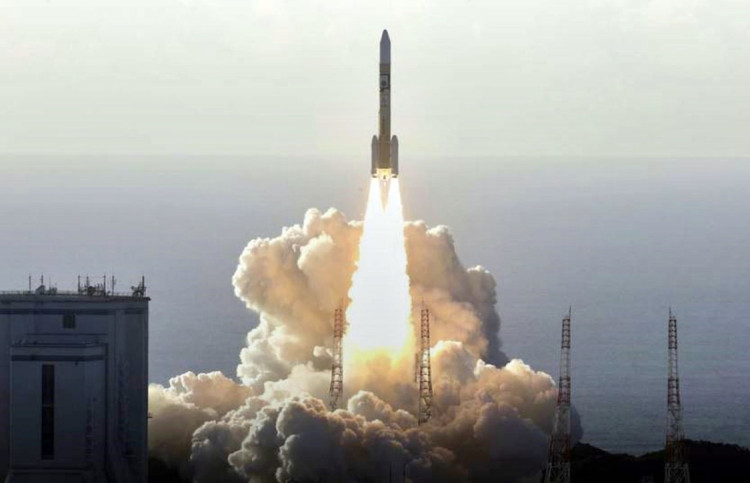South Korea is set to conduct a second test launch of its domestically manufactured Nuri space rocket on Tuesday, eight months after the first test successfully launched but failed to place a dummy satellite in orbit.
The rocket was erected on its launch pad at the Naro Space Center on South Korea's southern coast on Monday. The test was scheduled for last week, but it was canceled just hours before launch due to a problem with an oxidizer tank sensor.
The three-stage KSLV-II Nuri rocket, designed by the Korea Aerospace Research Institute (KARI) to eventually place 1.5-tonne payloads into orbit 600 to 800 km above the Earth, is a cornerstone of the country's plans to jumpstart its space program and achieve ambitious goals in 6G networks, spy satellites, and even lunar probes.
It is the country's first domestically built space launch vehicle and uses only Korean rocket technologies. South Korea's most recent booster, launched in 2013 after multiple delays and several failed tests, was developed in collaboration with Russia.
After Russia, the United States, France, China, Japan, and India, a successful launch would make South Korea the seventh country in the world to have developed a space launch vehicle capable of carrying a satellite weighing more than one ton.
It also means that South Korea has secured the critical independent technology for developing and launching space rockets carrying homegrown satellites, ushering in a new era in the country's space program.
Nuri is critical to South Korean plans to build a satellite-based navigation system and a 6G communications network. The country also intends to launch a number of military satellites, but officials deny that the Nuri is a weapon.
South Korea is also collaborating with the U.S. on a lunar orbiter, with the goal of landing a probe on the moon by 2030.
Space launches have long been a contentious issue on the Korean peninsula, where North Korea is subject to sanctions for its nuclear-armed ballistic missile program.
Separately, in March, South Korea's military oversaw what it claimed was the country's first successful launch of a solid-fuel space-launch rocket, as part of its plans to launch spy satellites.
The stakes will be higher in Tuesday's test, as Nuri will carry a rocket performance verification satellite as well as four cube satellites developed by universities for research.
KARI has stated that it intends to conduct at least four additional test launches by 2027.





